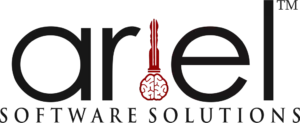
In the modern fast-paced development environment, ensuring software quality is crucial. Testing has become necessary, especially as applications are getting more complex for correct functionality, performance, and dependability. The testing frameworks are helpful if implemented because they enable developers and testers to achieve the automation and optimization of the testing process in a well-systematic method that might further increase accuracy and save a lot of time.
The functionality varies with different testing frameworks, from end-to-end tests simulating real-life usage to unit tests which can point out errors in the early stages of development. To help you choose the right testing framework for your project, we’ll go into great detail about the many types of frameworks, comparing popular options like Selenium, Jest, JUnit, and Mocha, and looking at their capabilities in this blog.
What is a Testing Framework?
A testing framework is a set of guidelines or rules for creating and designing test cases. It provides a structured approach to testing software applications, allowing developers and testers to write test scripts more efficiently. A good testing framework helps automate the testing process, manage test cases, and generate reports.
Types of Testing Frameworks
Low-code platforms give developers a very highly productive environment to create extremely complex applications using token codes. Here’s what they have in store:
- Unit Testing Frameworks: These frameworks focus on testing individual components or functions of the code. They help identify bugs at the earliest stage of development. This testing involves JUnit (Java), NUnit (.NET), pytest (Python).
- Integration Testing Frameworks: These frameworks test the interactions between different modules or services to ensure they work together correctly. Here are the examples Postman (API testing), TestNG (Java), and Jest (JavaScript)
- Functional Testing Frameworks: These frameworks evaluate the software’s functionality against the specified requirements. Includes Selenium (Web applications), Cypress (JavaScript applications), and Robot Framework (Generic automation)
- Performance Testing Frameworks:These frameworks test the application’s performance, scalability, and stability under various load conditions. Involves JMeter LoadRunner and Gatling.
- End-to-End Testing Frameworks:These frameworks simulate real user scenarios and validate the application from start to finish. Examples are Cypress, Protractor (Angular applications), and Playwright.
Comparative Analysis of Popular Testing Frameworks
| Feature | Selenium | Jest | JUnit | Mocha |
| Language Support | Multiple (Java, Python, C#, etc.) | JavaScript | Java | JavaScript |
| Type | Functional/End-to-End | Unit Testing | Unit Testing | Unit/Integration Testing |
| Ease of Use | Moderate | Easy | Moderate | Moderate |
| Speed | Slower (due to browser interactions) | Fast | Fast | Moderate |
| Community Support | Strong | Strong | Strong | Strong |
| Key Features | Web application automation | Snapshot testing, mocks | Annotations, assertions | Asynchronous testing support |
Detailed Insights
- Selenium: A powerful tool for automating web applications. It supports multiple browsers and programming languages, making it a versatile choice. However, it can be slower than other frameworks due to the need for browser interactions.
- Jest: A delightful JavaScript testing framework with a focus on simplicity. It is ideal for unit testing and comes with built-in mocking capabilities. Jest is known for its fast execution and ease of use, making it popular among developers.
- JUnit: A widely used testing framework for Java applications. Its simple annotation-based structure allows for easy writing of test cases. While it is mainly used for unit testing, it can also be extended for integration testing.
- Mocha: A flexible JavaScript testing framework that supports various assertion libraries. It allows for asynchronous testing, making it suitable for modern web applications. Mocha’s flexibility is its strength, but it requires more setup compared to Jest.
Conclusion
A good testing framework is, by all means, the key to the quality of the software. And, while each framework is unique and stands on its strong and weak sides, the best for your choice depends strictly on the specific project requirements, team expertise, and application architecture. Ariel Software Solutions recognizes that proper usage of the right tools is very important in helping us to produce quality software solutions with customer satisfaction to enhance the development process.
Move Your Software Development to the Next Level!
Ready to upgrade your quality, better software, reduced development time, and process acceleration? Contact Ariel Software Solutions Pvt. Ltd. now! We have an experienced team of tech architects working towards making sure you make the right decision in choosing testing frameworks and methodologies that are perfect for your needs. Whether you’re looking for some great unit testing, excellent integration testing, or rich end-to-end testing, we are here to help!




